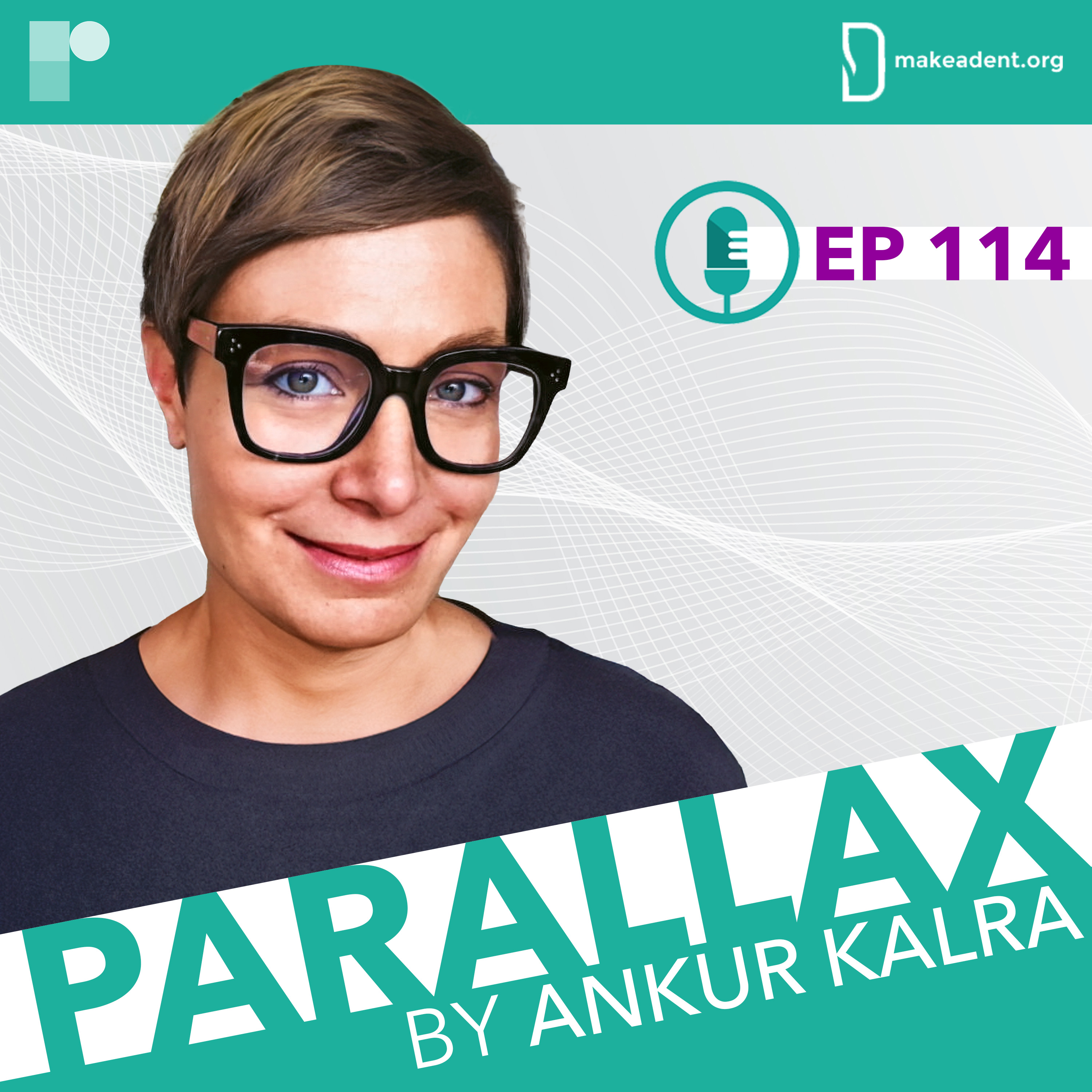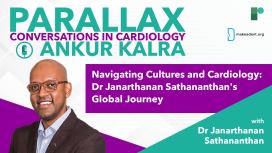
In this week’s Parallax, Dr Ankur Kalra welcomes back Shelley Wood, best known for her work in the cardiology community as the editor-in-chief of TCTMD and Editorial Director of CRF. They discuss her work as a creative author and her second novel, The Leap Year Gene of Kit McKinley, set to be published by Harper Collins in Canada and Union Square Press in the US in August 2024.
Blending the intrigue of a medical thriller with a sweeping overview of the twentieth century, The Leap Year Gene of Kit McKinley tells the story of Kit McKinley, whose rare genetic condition causes her to age one year for every four. In this rich discussion, Ms Wood shares how her extensive experience as a medical writer and editor shaped her approach to crafting the novel. Dr Kalra and Ms Wood also explore one of the book’s central themes: eugenics, tracing its historical roots and examining its long shadow on medicine. Ms Wood, who balances a demanding full-time job with her creative writing, shares candid insights into her routine and the challenges of writing and publishing fiction.
Tune in for an inspiring conversation about creativity, the human condition and balancing responsibilities.
To pre-order Shelley Wood new novel search for The Leap Year Gene/ The Leap Year Gene of Kit McKinley in your favourite independent bookshop or here.





Tune in to discover the strategies that Dr. Kalra and Dr. Alasnag are currently employing and gain insights into how these data will shape their future decision-making in the catheterization laboratory. Don't miss this informative discussion at the forefront of interventional cardiology.

As we adapt to the changes brought about by the pandemic, Dr Singh outlines the necessary steps to foster a reality in which we can utilize these technologies to create more time for human connection.

Dr Owens is Medical Director of the Center for Inherited Cardiac Disease and Associate Professor of Medicine at the Hospital of the University of Pennsylvania.
This series is supported by an unrestricted educational grant from Bristol Myers Squibb. Please see www.camzyosrems.com for important safety information.
This content is intended for US-based physicians.

This series is supported by an unrestricted educational grant from Bristol Myers Squibb. Please see www.camzyosrems.com for important safety information.
This content is intended for US-based physicians.

This series is supported by an unrestricted educational grant from Bristol Myers Squibb. Please see www.camzyosrems.com for important safety information.
This content is intended for US-based physicians.



After the #MedBikini campaign provoked by a misogynistic study that scrutinized female doctors’ social media posts, this episode is about creating a safer environment for female healthcare professionals.

The charity organisation, Women as One is an agent for women and men to be part of medicine that is built on talent, rather than a privilege. Roxana and Ankur discuss the role of mentorship and family-friendly work environment in mending the broken house of cardiology. Roxana talks about the practical tools that are available for women to take the next steps in their career and achieve their goals.

Dr Kalra asks Dr Mauri about early influences and her traineeship with legendary interventionalists, the late Donald Baim and Richard Kuntz. Dr Mauri talks openly about her decision-making process and the importance of selecting your priorities and committing to them. Ankur asks Laura about her decision to go into industry. Laura shares her thoughts on medical innovations and meeting urgent needs with unique perspectives.
What is Dr Mauri’s advice for a young cardiologist? How did she balance research and patient care? What are the questions that helped her decision making? How does Dr Mauri think about innovations in medicine?

Brigham and Women’s Hospital’s Health Equity Committee decided to confront the status quo by asking: How is racism on a structural level present within our walls?
Ankur Kalra’s guests Michelle Morse (Founding Co-Director of EqualHealth and Assistant Professor at Harvard Medical School) and Lauren Eberly (Cardiology Fellow at the University of Pennsylvania) are co-authors of a retrospective study that demonstrated what had previously only been observed: That black or brown heart failure patients ended up in general medicine rather than specialised cardiology services. Following the publication of the study in November 2019, the Health Equity Committee started to roll out anti-racism trainings and to work on objective admission guidelines to mitigate biased behaviours.
Aarti Bhatt (Assistant Professor of Medicine at the University of Minnesota), member of the Minnesota chapter of Campaign Against Racism, talks about their initiative to support projects that have a positive impact on local communities on a global scale.

In this week’s Parallax, Dr Kanaa’N, the director of the program, and Dr Lahorra, chairman of the Heart, Vascular & Thoracic Department of Akron General introduce the listeners to the foundations of their program and the paradigm shift brought by TAVR.






